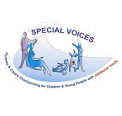St Ethelbert's Catholic Primary School

St. Ethelbert's is a two-form entry Catholic primary school serving the parishes of St. Ethelbert and the Holy Redeemer in Slough.
We are a caring Catholic community, which is committed to high academic achievement, where all members of our community are respected and valued as individuals. We aim to inspire a lifelong love of learning through providing our pupils with a rich and diverse curriculum.
Who to contact
- Contact name
- Fiona Maynard
- Contact position
- Headteacher
- Telephone
- 01753 522048 01753 522048
- post@stethelberts.slough.sch.uk
- Website
- St Ethelberts
- Scan to visit this website
Where to go
- Name
- St. Ethelbert's Catholic Primary School and Nursery
- Address
-
Wexham Road
Slough
Berkshire - Postcode
-
SL2 5QR
Find SL2 5QR on a map
Time/date details
- When is it on
- Monday to Friday Term Time only
- Session information
-
8:50am to 3:20pm
Availability
- Other notes
The school has a 10 place Speech and Language Resource Base to cater for children who, although having a specific severe speech and language disorder, are otherwise capable of benefitting from a mainstream curriculum. Pupils who attend the Resource Base typically have a statement of special educational needs or an EHCP which identifies that they need to attend a provision which provides specialist support for children with speech and language difficulties.
Childcare information
Funded places
- 3/4 year old funding
- Yes
- 2 year old funding
- No
Local Offer
- Contact name
- Jessica Page
- Contact telephone
- 01753522048
- Contact email
- post@stethelberts.slough.sch.uk
- Local Offer age bands
- Primary (4-10 years)
Schools extended Local Offer response
- Special Educational Needs policy
At St Ethelbert’s we are committed to offering an inclusive curriculum to ensure the best possible progress for each of our pupils whatever their needs and abilities. As a Catholic community we believe that every child is a unique and special blessing from God and that everyone who is part of our community should be equally valued, respected and loved.
The specific objectives of our SEND Policy are as follows:
- To identify pupils with special educational needs (SEN) and disabilities, assess these needs and ensure their needs are met.
- To ensure that pupils with special educational needs and disabilities join in with all the activities of the school.
- To ensure that quality teaching is provided and all members of staff are trained in delivering an appropriate curriculum to meet the needs of Special Educational Needs children.
- To ensure that all learners make the best possible progress.
- To ensure that parents are informed of their child's special needs and that there is effective communication between parents and school.
- To ensure that learners express their views and are fully involved in decisions which affect their education.
- To promote effective partnership and involve outside agencies when appropriate ensuring that all partners are aware of their responsibilities.
Through appropriate curricular provision, we respect the fact that children:
- Have different educational and behavioural needs and aspirations;
- Require different strategies for learning;
- Acquire, assimilate and communicate information at different rates;
- Need a range of different teaching approaches and experiences.
We welcome children with special educational needs and / or disabilities as part of our community and, from our early years setting onwards, we aim to ensure that all children have an equal opportunity to engage in the curriculum.
The school's SEN policy is available on the school's website under the policies tab.
- Teaching and learning
Quality first teaching underpins our approach to teaching and learning for all pupils in school. This is vital component in ensuring all pupils make at least good progress across the curriculum.
At St. Ethelbert’s, quality first teaching consists of:
- Using a range of teaching and learning styles
- Setting appropriate learning objectives that build on pupils' prior learning and existing knowledge and understanding
- Providing an engaging curriculum that is closely matched to pupils' needs
- Ensuring the learning in class is differentiated so all children are able to access the learning at their level whilst maintaining the right balance of challenge and support
- Setting ambitious targets which are shared with children and parents and reviewed on a regular basis
- Using guided group (small focus groups) to provide appropriate support or challenge within the classroom
- Using Learning Support Assistants to work with pupils in small groups or on a 1:1 basis to provide additional support or challenge
How will the curriculum be matched to my child’s needs?
- When a pupil has been identified with SEN, their work will be differentiated by the class teacher to enable them to access the curriculum more easily.
- LSAs may be allocated to work with the pupil, either as 1:1 or in a small focus group to target more specific needs.
- Targets will be set according to their area of need and written in their individual support plan. These will be monitored weekly by the class teacher and LSA and every term by the SENCo.
How will St Ethelbert’s Catholic School support my child, if they have SEN?
- Most children’s needs will be met through quality first teaching in class.
- However for some children there are occasions when further additional support may be needed to help them achieve their targets.
- At St Ethelbert’s the progress and attainment of all pupils is reviewed every half term by the Senior Leadership Team during Pupil Progress Meetings at which time provision may be adjusted to meet identified needs.
- Support plans are put in place for a child with SEN and/or disabilities who have an identified barrier to their learning, impeding their progress.
- The plan sets out targets that are currently being worked on and what additional provision is put in place for that child.
- For many children, targets will be connected to learning and will often be specifically to do with literacy and numeracy. For other children, they may focused on social interaction, communicating with children and adults, emotional difficulties, or overcoming physical issues (for example concerns with fine motor control)
If a pupil has needs related to more specific areas of their education, such as spelling, handwriting, numeracy & literacy skills etc. then the pupil will be placed in a small focus group. This will be run by the Learning Support Assistant (LSA). The length of time of each intervention will vary according to need. The interventions will be regularly reviewed by all involved to ascertain its effectiveness and to inform future planning.
- Identifying and assessing Special Educational Needs
How does the school identify children who need extra help?
- Concerns are raised by the class teacher, the parents/carers or the child
- Assessments carried out in school indicate that the child has a barrier to learning
- There is a change in the behaviour of the pupil.
- Limited progress is being made or the pupil's attainment is significantly below the rest of their peers
What happens if my child has been identified as requiring additional help or support?
- The school will set up a meeting with you to discuss this with you in more detail and to: listen to any concerns you may have too; plan any additional support your child may receive; and discuss with you any referrals to outside professionals to support your child's learning.
- If a child continues to have difficulty after interventions or has a high level of difficulty, they may be considered to have special educational needs (SEN) and they will be placed on the SEN register. Parents will be informed of this.
What should I do if I am worried that my child may have special educational needs?
- If you have any concerns then you should speak to your child's class teacher initially. This concern may also then be passed to the SENCo (Special Educational Needs Coordinator) to ensure that your child's needs are being met.
- If you are not happy that your concerns are not being managed in class and that your child is still not making progress then you should speak to the Assistant Headteacher for Inclusion/SENCo.
- Involving parents and children/young people in planning and reviewing progress
How will parents and children be involved in planning and reviewing progress?
- The targets for the SEN support plan are negotiated, as appropriate, with the child and the child’s family during parent consultation meetings.
- At the beginning of the new term, the teacher, parent and child (where appropriate), will review support plans and in partnership, write new targets.
- The targets will depend on the needs of the individual child.
- Information and reports from outside agencies will be discussed with parents/carers.
How will I know how my child is doing?
- Your child's class teacher is available at the end of each day if you wish to raise any concerns or receive a brief update. You are also welcome to make an appointment with your child's class teacher or the SENCo if you wish to discuss your child's progress in greater detail.
- Parent Consultations are held twice a year (normally in the autumn and spring terms) which provide an opportunity for you to have a detailed update on the progress your child is making
- Your child will also receive a written end of year report which summarises your child's progress over the year
- Additional support
St. Ethelbert's has a highly experienced and skilled team who may be involved in supporting your child. These include:
- Your child's class teacher, who will always make sure that the tasks set are appropraite and accessible to your child. They are available to speak to you at the start and end of the day. If you would like to discuss your child's progress in greater detail then please make an appointment via the school office.
- Learning Support Assistants who support targeted pupils in class
- The Assistant Headteacher for Inclusion/SENCo who coordinates the provision for pupils with SEN across the school
- A number of Learning Support Assistants who are trained to deliver Speech and Language targets
- An Educational Psychologist who works with the school for 1/2 day per week. Her work includes assessment of children's barriers to learning as well as providing the school and families with advice to ensure that the pupils needs are met and that they make progress
- Outreach workers who may be assigned to work with pupils to support them with behavioural issues
- Behaviour Support professionals who give advice when required
- The services or advice of other professionals may also be sought dependent on the needs of the pupils (e.g. Autism Advisory Teacher)
What specialist services and expertise are available at or accessed by the school?
At times it may be necessary to consult with outside agencies to receive their more specialised expertise. The agencies used by the school include:
- Educational Psychologist (EPs)
- Child & Adolescent Support Team (CAST)
- Behaviour Outreach Service (SEBDOS)
- Child & Adolescent Mental Health Service (CAMHS)
- Social Services
- Children’s Therapy Team (Speech & Language/Occupational Therapy)
- School Nurse
The school will complete a referral to consult with outside agencies based on an individual’s needs. Parents will always be informed of this and parental consent obtained where necessary.
- An Educational Psychologist (EP) is allocated to St Ethelbert’s CatholicSchool. S/he will assess pupils in school who have not progressed as a result of the interventions put in place for them.
- The EP will meet with parents/carers and give feedback after each assessment has been completed.
- S/he will offer us advice and parent/carers on how to best support the pupil in order to take their learning forward.
Pupils with medical needs
- If a pupil has a medical need then a detailed care plan is compiled with support from the school nurse in consultation with parents/carers. These are discussed with all staff who are involved with the pupil.
- Every year, all staff at St Ethelbert’s receive epipen and asthma training delivered by the school nurse.
- There are specific members of staff who have first aid training and the school is committed to ensuring that this training is updated regularly.
Speech and Language Resource Base
What is the Resource?
- The school has a Speech and Language Resource Base to cater for children who, although having a specific severe speech and language disorder, are otherwise capable of benefitting from a mainstream curriculum.
- The Resource has its own dedicated equipment and facilities and is staffed by a speech and language therapist and specialist learning assistants.
- The Resource Base operates a fully inclusive model and is fully integrated with the school. All children allocated places in the Resource are registered as pupils at St Ethelbert’s and participate as pupils in mainstream classes with peer interaction as well as the individual and small-group work within the Resource.
- The school has six places for pupils aged from Reception to Year 6 and a further four places for nursery pupils on a part-time basis (afternoons).
Overall aims of the Resource
- The primary aim of the Resource is to remedy language difficulties and maximise language development of individual children, with a view for them to return to their local mainstream school.
- Speech and Language therapy is provided, as appropriate to the needs of each child. This may focus upon developing receptive and expressive language skills, vocabulary, attention, listening and speech.
- The Resource also provides pupils with access to a full mainstream curriculum, with emphasis on language, by giving such assistance as is necessary to help them overcome any disadvantage arising from their speech and language difficulties.
- The Resource provides a full range of opportunities for learning through play and real experiences, supplemented by specific speech therapy appropriate to the needs of each child. Skills learned within the Resource on an individual or small-group basis are then exercised and developed in the mainstream classroom with the close cooperation of the class teacher, supported where necessary by Resource Staff.
Selection criteria
All children who attend the Speech and Language Resource Base have been referred by the Local Authority following an assessment by professionals such as an Educational Psychologist and Speech and Language Therapist.
- Pupils who attend the Resource Base typically have a statement of special educational needs or an EHCP which identifies that they need to attend a provision which provides specialist support for children with speech and language difficulties.
- The Local Authority hold Termly Admissions panel meetings. The Admissions Panel will allocate a place to a child if there is a space within the Resource Base and the evidence provided from professionals indicates that the Speech and Language Resource Base is the most suitable provision to meet their needs.
- Places for the nursery are allocated at an Admissions Panel in the summer term. A place in the nursery does not guarantee a place in the Reception and parents will need to apply for a place in Reception through the normal application procedures in Slough.
- Extra activities
Extra activities outside of school
- As well as the learning we organise during the day we also offer a range of school clubs activities.
- These are offered to different age groups at different times throughout the year.
- These include activities such as gymnastics, dance, choir, football, art, gardening, cookery and multi-sports.
- These clubs and activities are available to all children in the school and no child will be prevented from joining a club because of a special educational need. Risk assessments, guidance on staff/pupil ratios and health and safety procedures are followed to ensure that all pupils can participate safely.
- For pupils entitled to free school meals, the school is committed to subsidising the cost of one additional out of school activity/club per term to ensure that they have access to these opportunities.
School trips
- Each year group experiences at least one school trip per year.
- School trips are available to all and proper procedures, including risk assessments are put in place to ensure that all children are able to participate.
- Slough Local Authority guidance on staffing ratios is always adhered to as the safety of pupils is of the upmost priority.
- Children with EHC plan or statement of Special Educational Needs will usually have an additional adult with them on the trip to support them on a 1:1 basis.
- Parental contributions towards the cost of school trips is on a voluntary basis and no child will be excluded from a trip due to an inability to pay the full or part of the amount. Please see our Charging and Remissions Policy on our school website for further information regarding this.
- Meeting social and emotional needs of children/young people
What support will there be for my child’s overall well-being?
The Pastoral Care Manager, class teacher and SENCo are readily available for parents and pupils who wish to discuss issues and concerns.
- St Ethelbert’s CatholicSchool has a full time Pastoral Care Manager, who works closely with families, children, teachers and class LSAs to support pupils’ well-being on an individual basis
- The school also provides nurture groups to support a small number of pupils who need an additional or different provision to meet their social and emotional needs. These are usually led by our Pastoral Care Manager and consist of individual or small group work to support children develop coping strategies needed for issues such as behavioural concerns, making and sustaining friendships and anger management
- Every year our school participates in the nationwide anti-bullying campaign which raises awareness of bullying of children and young people, in schools and elsewhere and to highlight ways of preventing and responding to it. Our school does not tolerate bullying and where concerns are raised these are dealt with immediately to ensure that all children are safe and happy at school.
- The SENCo and Pastoral Care Manager also consider carefully the social and emotional needs for Looked After Pupils and provide appropriate nurture groups/mentoring to support them with any emotional issues and remove any potential barriers to learning.
- Keeping up to date with knowledge and skills
To ensure our staff have the skills and knowledge to support children with SEN there is an ongoing programme of training and support.
- This may be in-house training provided by the SENCo or training provided by professionals such as the Educational Psychologist. The school may also send staff to specific training in order to support the needs of individuals or groups of children.
- Recent training has included training on Read, Write, Inc Phonics and Colourful Semantics.
- Each year 5 INSET days are used for teacher training and time is allocated to staff/groups of staff for training on special educational needs. This is planned by the SENCo based on the needs of pupils in the school and the training needs of staff/groups of staff within the school.
- All new members of staff are given an induction which includes information on our Special Educational Needs Policy and the procedures we use in school to ensure this policy is implemented effectively.
- Transitions
Many strategies are in place to enable all pupils’ transition to be as smooth as possible.
These include:
- Discussions between the previous or receiving schools prior to the pupil joining/leaving.
- All pupils attend a transition session at the end of the academic year, where they spend some time with their new class teacher in their new classroom.
- In year 6, pupils go and spend a day in their new secondary school.
- Additional visits are arranged for pupils who need extra time in their new school, if they are moving to secondary school.
- The SENCo liaises with the SENCos from the secondary schools to pass on information regarding SEN pupils.
- Helpful contacts
We invite and encourage parent/carers to contact the school office to arrange a meeting with the SENCo if you wish to discuss your child’s educational needs or have any queries or concerns.
In some situations, it may also be appropriate for the headteacher to work with the SENCo and class teacher to ensure that the school is able to fully meet a pupil’s needs. Parents are also welcome to make an appointment with the headteacher if they think that concerns raised with the class teacher and SENCo have not been dealt with to their satisfaction.
- Headteacher: Mrs Sarah Murphy
- SENCo/Assistant Headteacher for Inclusion: Mrs Natasha Harrison
Last updated
Last updated - .
Disclaimer
This information has been collected from third party providers. Slough Information and Services Guide and Slough Borough Council cannot accept responsibility for the accuracy of this information and recommend that parents, carers, young people, residents and professionals check with providers regarding DBS (Disclosure & Barring Service), OFSTED and CQC registrations.





